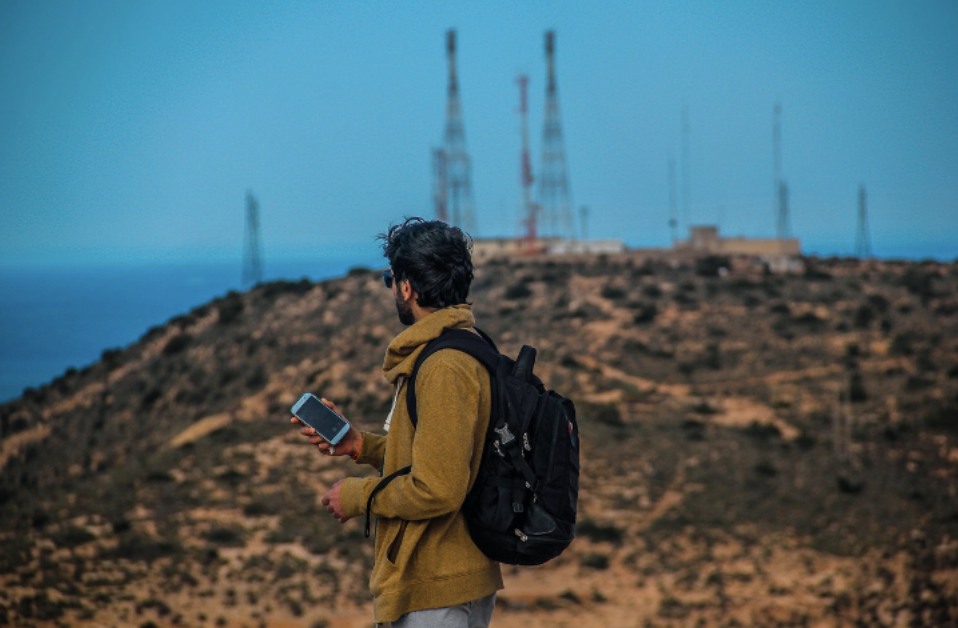

People suffering from sleep apnea have to rely on medical equipment like CPAP machines and air filters. Travelling can be challenging for sleep apnea patients who rely on Continuous Positive Airway Pressure (CPAP) therapy. Whether you are embarking on a weekend gateway or an extended vacation, the very thought of lugging around a portable CPAP machine along with its accessories can be scary. But you can easily pull it off with careful planning and a few handy tips; travelling with your CPAP mask can be a breeze.
So, if you are suffering from obstructive sleep apnea or central sleep apnea and looking for tips on how to travel with travel CPAP machines, then make sure to follow the tips given ahead. In this article, we will explore essential advice to make your travels smoother and ensure you continue to get the restful sleep you need.
Before embarking on your journey, it is crucial to research and understand the policies and regulations of the airline you will be flying with. There are specific regulations in place when it comes to travelling with medical equipment.
Most airlines allow passengers to bring their CPAP machines and related equipment as part of their carry-on baggage. However, it's wise to double-check specific requirements, such as whether a medical certificate is needed or if there are any restrictions on the use of CPAP devices during the flight.
Your regular CPAP machine can be a little bulky for travel. If that's the case, then you should consider investing in a more compact, lightweight, and travel-friendly CPAP device. There are various kinds of portable CPAP machines available. Many manufacturers offer portable options designed with frequent travellers in mind. These machines are not only smaller but often come with travel cases for added convenience.
Some airlines don't allow you to carry medical equipment if you don't present your prescription and other medical documentation. To avoid any issues with airport security or customs, carry a copy of your CPAP prescription and relevant medical documentation. This ensures that you can easily explain the medical necessity of your CPAP mask if questioned. Having these documents on hand can also be helpful in case you need to replace any lost or damaged equipment while abroad.
Murphy's Law tends to apply when it comes to travelling – if something can go wrong, it might. To prepare for unforeseen circumstances, pack extra CPAP supplies such as tubing, filters, and cushions. This not only ensures you have everything you need but also provides a buffer in case any components need replacing during your trip.
While most accommodations offer electrical outlets, it's wise to be prepared for situations where power sources may be limited or unreliable. Consider investing in a battery backup or portable power source for your CPAP machine. This is especially useful during long flights, road trips, or in destinations where power outages are common.
Travelling is not easy, especially when you have heavy luggage with you. One single mishandling and you can end up damaging your CPAP equipment. So, to prevent this from happening to your CPAP machine, always pack it in your carry-on bag rather than check it with your luggage.
Airline baggage handlers may not be as gentle as you would like, and the last thing you want is to arrive at your destination only to find that your CPAP machine has been damaged in transit.
It is quite difficult to maintain the hygiene of your CPAP machine when you are on the go. However, it is equally important; otherwise, you can be easily susceptible to infections. Before you embark on your journey, ensure that your CPAP equipment is thoroughly cleaned and sanitized.
Many travel-sized CPAP cleaners are available, making it easy to keep your device in top condition while on the go. Additionally, clean your equipment again once you reach your destination to prevent the buildup of bacteria and allergens.
Consider using travel-sized CPAP cleaning products in addition to your regular cleaning routine. It can be convenient to have compact CPAP wipes and cleaning solutions for maintaining your CPAP mask and equipment during your travels.
Doing so will not only help keep them clean but also make it easier to adhere to your cleaning routine while away from home. After all, it's essential to keep your medical equipment clean, especially the ones you are going to use in your mouth.
Adapting to a new schedule might take some time when you are travelling across time zones, which can disrupt your sleep cycle. Start adjusting your sleep time and CPAP therapy schedule a few days before your trip to ease this transition. This will help you minimize the impact of jet lag, providing a smoother transition into your regular CPAP routine.
Communicate your CPAP needs in advance if you're staying in a hotel or other accommodation. Usually, the accommodations are familiar with CPAP machines, thus providing you with the necessary electrical outlets and any additional support you may require. Do not forget to confirm these arrangements when booking your stay.
If you are travelling with a CPAP machine, it doesn't mean you will have a stressful experience. Proper planning, the right investment in travel-friendly equipment, and staying organized will ensure you a better CPAP therapy that remains consistent even when you are on the move. Also, remember to check airline policies, pack spare parts, and communicate with your accommodations to make your travels as smooth and restful as possible. You can be on your journey with confidence, knowing a good night's sleep is always within reach by simply considering these tips.
Leave a comment